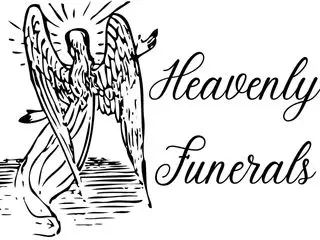Table of Contents
When it comes to the final farewell, every detail matters, including the headstone. It stands as a lasting monument to the deceased, often capturing their spirit in a few carefully chosen words or symbols. The question of whether a headstone is considered a funeral expense has stirred up quite the discussion among those planning for the inevitable. After all, funerals are already expensive affairs, and the cost of a headstone can significantly add to the financial strain. Given that funerals can range from simple, intimate gatherings to grand send-offs, the boundary between necessary expenses and extravagant extras tends to be as blurred as a ghostly apparition.

The art of immortalizing loved ones in stone has, without doubt, evolved into a substantial aspect of funeral planning. Nevertheless, does this critical element of remembrance count as a funeral expense according to tax guidelines and estate planning? By some accounts, headstones are deductible, so long as they are paid for out of the deceased’s estate. However, when it comes to who should pick up the tab—whether it’s considered a funeral or an estate expense—opinions can vary as wildly as haunted house stories.
Understanding whether a headstone is a funeral or estate expense isn’t just about nailing down numbers; it’s akin to discerning the ghost in the financial machine. It’s about navigating the murky waters that divide the land of the living’s financial concerns and the departed’s final wishes for a stylish exit.
Key Takeaways
- Headstones might be considered a part of overall funeral expenses.
- Tax guidelines and estate planning play roles in categorizing headstone costs.
- Opinions on whether headstones are funeral or estate expenses can vary greatly.
The Great Debate: Is a Headstone a Funeral Or Estate Expense?

When the curtain falls on life’s stage, the question arises: Is a headstone part of the final bow or a line item on the estate’s balance sheet? Let’s chip away at this bedrock query.
Estate Planning Shenanigans
Estate planners might ruffle their papers and point to the chiseled fact that a headstone often falls under the umbrella of estate expenses. Why the fuss? Because the Internal Revenue Service (IRS) has a maze of tax codes that can turn the most solemn event into a bureaucratic circus.
The Taxing Side of Death
In the land of taxes, nothing is certain except death and… more taxes. Specifically, when filing an estate tax return, one may find that funeral expenses are considered tax-deductible. However, the deductible costs must meet the IRS’s criteria for reasonableness, and they scrutinize this on Form 706, sometimes with the enthusiasm of a detective at a murder mystery dinner.
Itemizing the Inevitable
Itemizing the inevitable means breaking down expenses on Schedule J of Form 706. Here, they separate the wheat from the chaff, or rather, the tax-deductible wheat from the chaff:
- Funeral service arrangement costs
- Transportation costs
- Funeral home facility costs
But where does the headstone fall? Often, it’s left standing alone, waiting to see if it will be claimed as part of the burial expenses or left in estates’ cold embrace.
Specifics of the Stone
A headstone, also a grave marker, is often excluded from the list of eligible expenses due to its troublesome nature—it’s not universally seen as a necessity but rather a symbolic gesture. This gray area leaves the executor scratching their head instead of writing checks.
Money Matters: Who’s Paying?
Finally, it’s a show of wallets. Who really pays for the last word in stone? If the estate is flush with cash like a high roller in Vegas, the federal estate tax might cover it. Otherwise, it’s up to individual taxpayers to roll the dice and hope for a reimbursement from a life insurance or final expense insurance policy, leaving the headstone expense often as unsettled as an old ghost story.
The Departed Rides In Style

When it comes to sending off loved ones, it seems every detail can come at a cost, from the stately transportation to the closing ceremonies. Let’s break down the expenses that add both pomp and a touch of extravagance to the grand finale.
Last Uber to the Afterlife
The hearse – essentially the last Uber your loved one will hitch a ride in – conveys more than just the dearly departed; it carries an air of dignity. In this solemn procession, even the vehicles get a touch of class:
- Hearse: A specialized vehicle, sleek and somber, for the main event.
- Limousine: Comfort for the grieving VIPs who can reminisce in cushioned luxury.
Professional Farewell Coordinators
Running the show are the funeral directors – the maestros of mourning. They are there to make sure the tissues are plentiful and the transitions seamless:
- Director Fees: For coordinating the event with grace and perhaps a hint of theatrics.
- Funeral Home: From the soft lighting to the impeccably clean facilities, their job is to set the stage for a dignified adieu.
Afterlife Afterparty Expenses
The last hurrah isn’t just a gathering; it’s a production, with a range of services to toast to a life well-lived:
- Catering Services: From dainty sandwiches to strong coffee, they soften the sorrow with tasty treats.
- Floral Arrangements: Blossoms that speak volumes in hushed tones, draping the event in beauty.
In this tasteful tableau, one finds an array of elements that elevate a simple goodbye to a splendid soiree.
Eternal Rest in Peace, with Interest

When folks shuffle off this mortal coil, their families often face the financial conundrum of giving them a proper sendoff, complete with a headstone. The Earthly departure may be eternal, but alas, so are the associated expenses.
Financing Future Rest
They say you can’t take it with you, but you sure can leave a bill behind. Financing a final resting place isn’t just about picking a cozy plot; it’s about ensuring that future care doesn’t become a haunting specter for the living. With options to pre-pay for maintenance and interment services, the dearly departed can rest with interest – monetary, not just spiritual.
Tax Eternal: Not Even Death Can Stop Them
The Internal Revenue Service might not follow one to the great beyond, but they’ll certainly have a say before the journey. Expenses related to the funeral, including that all-important headstone, may lower the taxable income on a federal income tax return. And don’t forget, even state tax returns can see the benefit of miscellaneous deductions. Remember, the estate may owe taxes, but a proper burial and memorial can be a haven for deductions.
All About the Benjamins…and the Dead Presidents
Headstones aren’t just sentimental—they’re assets of the estate. When tallying up expenses, make sure to account for everything from the burial service to the cemetery fees. It’s not necessarily about penny-pinching, but a headstone’s cost is as firm as the ground it stands on, and it’s a notable line item for those final financial adieus.
- Estate’s Deductibles:
- Headstone
- Burial plot
- Memorial service
Clergy Tax Exemption Bonanza
Even the ministers, rabbis, or any clergy officiating at the final curtain call may find a silver lining. While clergy fees might seem heavenly, they can be terrestrial tax exemptions for the estate. Whether giving the last rites or the first eulogies, these spiritual guides may have their fees exempted from the estate taxes—a bonanza in a time of bereavement.
Solemn and Hilarious Honorary Mentions

Before one delves into the deeper aspects of funeral expenses, it’s essential to acknowledge the peculiar aspects that accompany the end-of-life ceremonies—from attire that defies expectations to the guest list curation for one’s eternal send-off.
Funerary Fashion Police
In the world of final farewells, sartorial choices can range from the traditional to the eyebrow-raising. Clothing might be the last thing on one’s mind, but sometimes the deceased has left explicit instructions, creating a sartorial spectacle for mourners. Imagine a clause in the will dictating that all attendees should wear neon tracksuits.
- Dress Code Specified: Yes or No
- Attire: Description of the necessary garb
- Chuckles Generated: Estimated measure of amusement
The Graveyard Get-Together VIP List
It’s not just who wore what, but also who made it to the VIP list of the dearly departed. The audience for one’s grand exit can be as meticulously curated as an art gallery opening—sometimes leading to comical situations where the next of kin have to decipher cryptic instructions left behind.
- Next of Kin: Individual or individuals tasked with list oversight
- Notable Attendees: A roll call of those with honorary mentions
- Awkwardness Level: A gauge of social discomfort
Eulogizing Uncle Sam’s Wallet
Lastly, one cannot forget the part where Uncle Sam scrutinizes the final spend tally. Embalming, the ceremony, and even the headstone might catch a glance from those managing estates and taxes. The ever-watchful eye of the IRS decides if any of these can be claimed as a deductible on the tax return, a situation that can generate a chuckle or a grimace depending on one’s perspective.
- Potential Deductibles:
- Embalming: A possible consideration
- Headstone: Consult the IRS for clarity
- Federal Estate Tax Concerns:
- Threshold: Estates worth $11.58 million may need to file federal tax returns
- Department of Veterans Affairs: Can offer assistance for qualifying individuals
- Social Security Perks:
- One-time Death Benefit: A modest sum to help with expenses
- Veterans Affairs: Additional perks for those who served
- Difference Between a Monument and a Memorial: More Than Just Stone-Cold Facts! - December 16, 2025
- Difference Between a Headstone and a Gravestone: The Ultimate Rock Rivalry - December 16, 2025
- Different Headstone Shapes: A Grave Decision Guide to Monument Styles - December 16, 2025


Leave a Reply